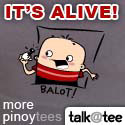Bachelor of Science in Electrical Engineering in the Philippines
The Bachelor of Science in Electrical Engineering (BSEE) is a five-year degree program in the Philippines that is concerned with electricity, its production, transmission, distribution, and usage. Its curriculum covers everything from the design of electrical systems up to their operation and maintenance as well as cheaper and safer ways of completing engineering projects.
Among the things that you may learn from enrolling in this program are:
- Basic Thermodynamics
- Electronic Circuits and Devices
- Electronic Circuits Analysis and Design
- Industrial Electronics
- Electromagnetics
- Logic Circuits and Switching Theory
- Microprocessor Systems
- Control Systems Analysis
- Electrical Transmission and Distribution System
- Illumination Engineering Design
- Electrical Equipment: Operation and Maintenance
- Power System Analysis and Design
- Electrical System Design
- Power Plant Engineering
In addition to those courses, you may also undergo a minimum of 240 hours of On-the-Job Training at actual plants and similar facilities where you will be able to put what you have learned in school to practical use.
What Students Have to Say:
CAREERS
Licensed Electrical Engineers can find employment as a/an:
- Power Engineer
- Design Engineer
- Illumination Engineer
- Businessman
- Sales Engineer
- Distribution Engineer
- Instrumentation and Control Engineer
- Safety Engineer
- Electrical Design Inspection
- Software Developer
- Construction Engineer
- Professor
LICENSURE EXAMINATION
Passing the Licensure Examination for Electrical Engineers is one of the requirements in seeking employment in the Engineering industry. Please check the official website of the Professional Regulatory Commission for more information.






